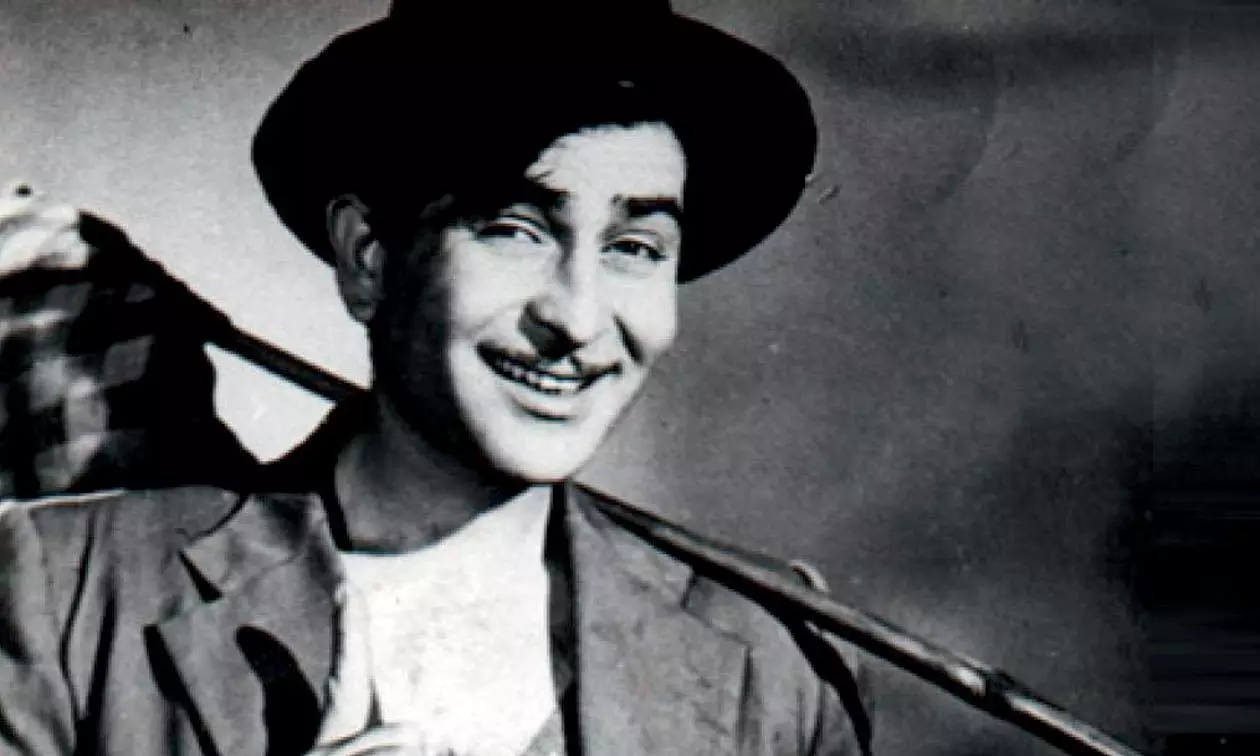Farrukh Dhondy | UK to Celebrate Raj Kapoor’s Heroic Myths of India After 1947
My own view of Raj Kapoor, which I enthusiastically forced on the producer and director, was that he was distinctly one of the great pioneers of Indian film

OF CABBAGES AND KINGS
“No height to which a tree can grow
No ambition for the steady and slow
No limit to the number of leaves of grass
Or hours of idleness spent on your arse
No counting the suffering and the pain
The heartbreak the hurt, the hoping in vain
No counting the drops of which oceans are made
Avoid bright calculation, relax in the shade….”
From Galli Bal Blues, by Bachchoo
“Tongues of Fire” has established itself as one of the leading Indian film festivals in the UK. It’s been going for years and I have variously been invited to appear on its platforms, to serve as a judge on a panel evaluating and giving prizes to young Asian filmmakers and giving the organisers contacts with the Taruns, Devs and Haris of the film industry with whom I am acquainted (of course that should today include Tannishthas, Devikas and Hasinas?).
I wasn’t much good as a judge. My fellow judges always awarded the prizes to young filmmakers who championed anti-racism, feminism and other well-worn and clichéd subjects. My old-fogey (they say “dinosaurish” nowadays, don’t they?) mentality was looking for narrative and dramatic conflict and was constantly overruled and, I suspect, though my co-judges were strictly wonderful, secretly mocked. Did it put me off Tongues? Is the new Pope transgender?
No. I continue to support the festival in any way I can and am friends with Pushpinder Chowdhry, who is the boss of the festival and an energetic cultural organiser who should really be in the House of Lords as a baroness for her services to multi-cultural Britain -- but enough of that!
This year I have been offered (relegated?) to the austere role of giving out a prize at the concluding award ceremony. Okay, it’s not like being the master or mistress of ceremonies at the Oscars, but the event will fill the auditorium of the Riverside Studio at Hammersmith and I look forward to congratulating the winners without any offensive statements or jokes.
And the other thing I did for the festival was called Pushpinder on behalf of my friend Bobby Bedi, though they know each other and didn’t need my intervention, to ask if his documentary film Kehta Hai Joker on Raj Kapoor could be included in this year’s Tongues. And so there it is -- on the Sunday after the coming Saturday’s publication of this column.
Bobby will after the screening, speak about the film which contains interviews with family, filmmakers and stars. Since I am none of these, I wasn’t interviewed -- and, sincerely, am not using this paragraph to complain. I haven’t seen the film and look forward to the screening, but some years ago, as a commissioning editor for Britain’s Channel 4 TV, I commissioned a series called The Peacock Screen -- a history of Indian cinema.
I, in my editorial role, discussed this history over and over with the researchers and producers of the project.
My own view of Raj Kapoor, which I enthusiastically forced on the producer and director, was that he was distinctly one of the great pioneers of Indian film.
He began directing in the year after Indian Independence. Yes, the Independence movement and Gandhi, Nehru and countless others had achieved their aim of freeing the Indian population. Yes, we were free! But who were we?
It takes an invented myth, the work of a genius, to give a whole population a definition of who they are. Of course it is, by such definition, a myth based on acute observation and insight, but obviously not a description of reality.
Raj Kapoor, through his successive films, supplied the post-Independence myth of India.
The myth says the Indian is a poor man, a peasant even, with truth on his (or her? Though he wasn’t much of a champion of feminism) lips, a clean heart and compassion for his fellow humans and, yes, his guests whom he values more than life itself?
Here it is in the words of the song, consistent with the drama of the films which he used to perpetrate it: “Jahan hoton pey sachchai hothi hain/ Jahan dil mey saffai rehti hain/Hum uss desh key vaasi hain/ Jiss desh main Ganga behthi hain…!” (So, truth on the lips, cleanliness in the heart of the denizens of the land where the Ganga flows.)
Gentle readers, how many marks would you give Raj for the accuracy of Indian pronouncements -- no lies on lips ever??? Really? And how would you assess the assertion that all Indian hearts are clean of all negativity -- such as envy, jealousy, hatred… etc? And then the announcement that we live in the land where the Ganga flows? 10/10 for geographical correctness?
His heroes were the awaara, Raju the boatman, the “chhalian” -- a sort of Autolycus figure, the petty pickpocket from Shakespeare and, of course, the fool and joker. His villains were the city slickers, the shadow and legacy of Britishness. They wear ties.
The myth endured, dominated and travelled. It, in the shape of Kapoor’s films, went to all the countries that were emerging from peasanthood.
When people say his films went to Russia, they are right -- but not to Moscow or St. Petersburg -- they were adored in the Soviet republics which shared the poverty and emerging peasant economy of India.
Now “Tongues of Fire” appropriately celebrates our Homer.

